About this course
Sleep deprivation is not a specific disease within itself, but it is usually the result of other illnesses or life circumstances/events that can cause physical or psychological symptoms if prolonged over a long duration with poor health outcomes . Under the ICD-10- or DSM include sleep disorders, and within this list of categories is insomnia.
Most people are familiar with the term insomnia but do they know the reason for this condition.
Insomnia can be caused by psychiatric and medical conditions, it is when you may have trouble falling asleep, staying asleep, or both. As a result, you may get too little sleep or have a poor-quality sleep. You may not feel refreshed when you wake up. Insomnia can be triggered or perpetuated by a number of factors and they are discussed within this article.
A 2-year-old requires up to 14 hours of sleep a night, and a 9-year-old as much as 12, while a middle-aged adult should function well with eight. Making sure kids get all the sleep they need is crucial: It's well established that inadequate sleep in early childhood affects brain development and socialisation.
Adolescents experience about a two-hour shift in the release of melatonin, preventing most from getting sleepy before about 11 p.m. This wouldn't be a problem if kids could adjust their schedules to fit with their shifting biology, but they can't: School starts at 8:30, and alarms typically go off by 7:00. It is equivalent to an adult being woken up at 4 a.m.
High schoolers who slept less than six hours a night were twice as likely to use alcohol, tobacco, or marijuana as those who slept eight hours, according to a 2018 study, and were three times as likely to consider or attempt suicide .
It's often assumed that older adults require less sleep than others. That's not the case: Individuals over 65 still need seven to eight hours a night. Some individuals do not require this much snooze time, but they are not the norm. However, the primary threats to sleep later in life are physical and psychiatric illnesses and the medications used to treat them.
However, when you get less sleep than that, as many people do from either a physical, social, mental or emotional circumstance, it can eventually lead to a whole host of health problems in the future.
Sleep deprivation can occur for many reasons:
These include:
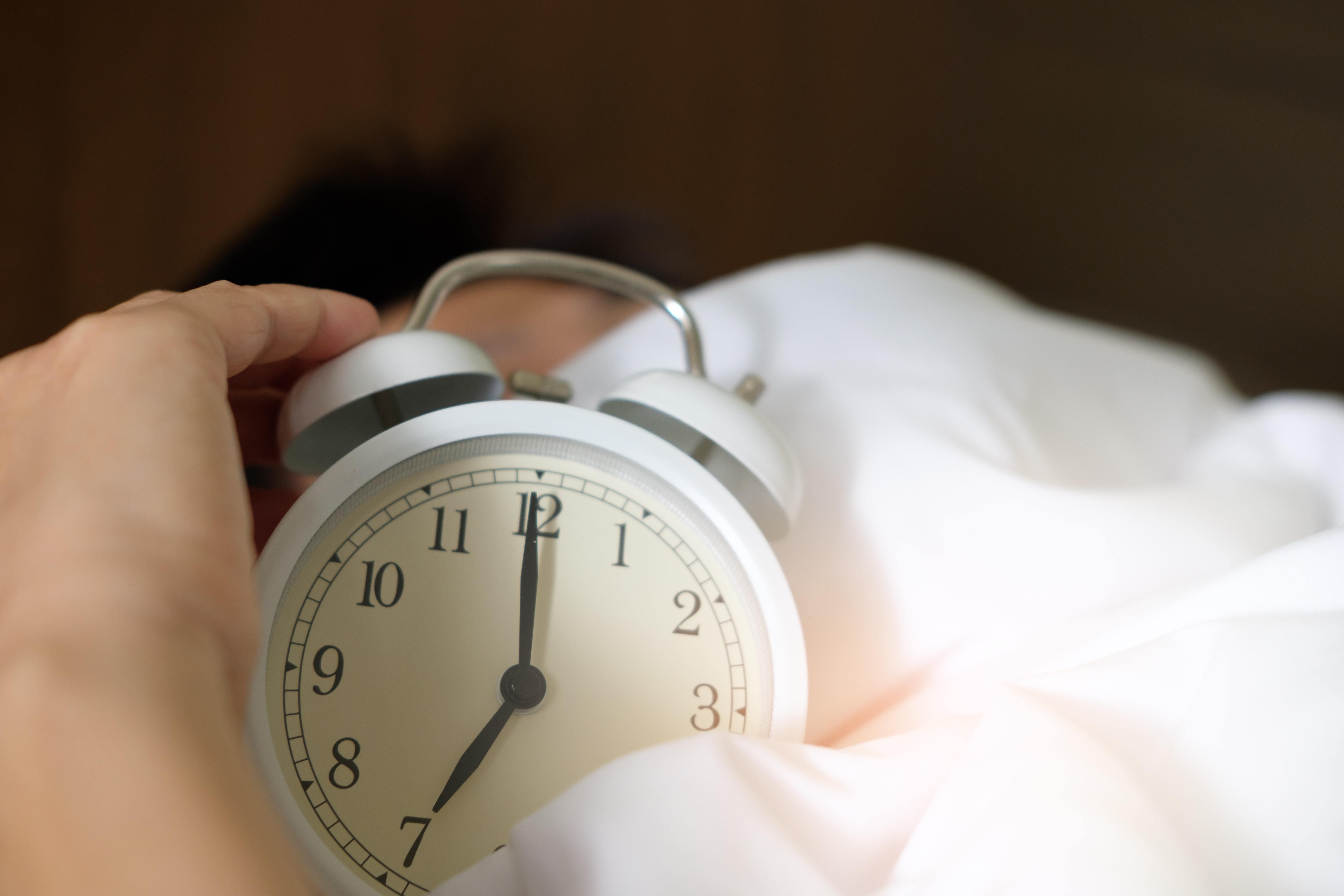
Because sleep is crucial for your long-term health and wellbeing, ensuring you have the energy and focus on getting through your day.
Unfortunately, most of us do not get enough sleep and achieving less than seven hours of sleep per night, according to a survey from the National Geographic Channel. 40% of Americans are sleep deprived.
According to the Economic and Social Research Council, ten per cent of people regularly take some medication in order to get a good night's sleep.
Lack of sleep does not just cause bags under the eyes and fatigue — it can also have an impact on health.
It is associated with long-term health consequences, including chronic medical conditions like diabetes, high blood pressure, and heart disease, and that these conditions may lead to a shortened life expectancy.
Also, sleep deficiency has played a role in human errors linked to tragic accidents, lack of sleep can be blamed for up to 40,000 road crashes a year, for bad decision making in business and even for such disasters as nuclear reactor meltdowns (Chernobyl), grounding of large ships, and aviation accidents.

If you regularly sleep poorly, you have a higher risk of cardiovascular disease, according to a previous study by the American Heart Association found that sleeping for fewer than six hours a night increases inflammatory substances in the blood, raises blood pressure and heart rate and affects blood sugar levels, which in turn can raise your risk of heart disease and weight gain (type 2 diabetes).
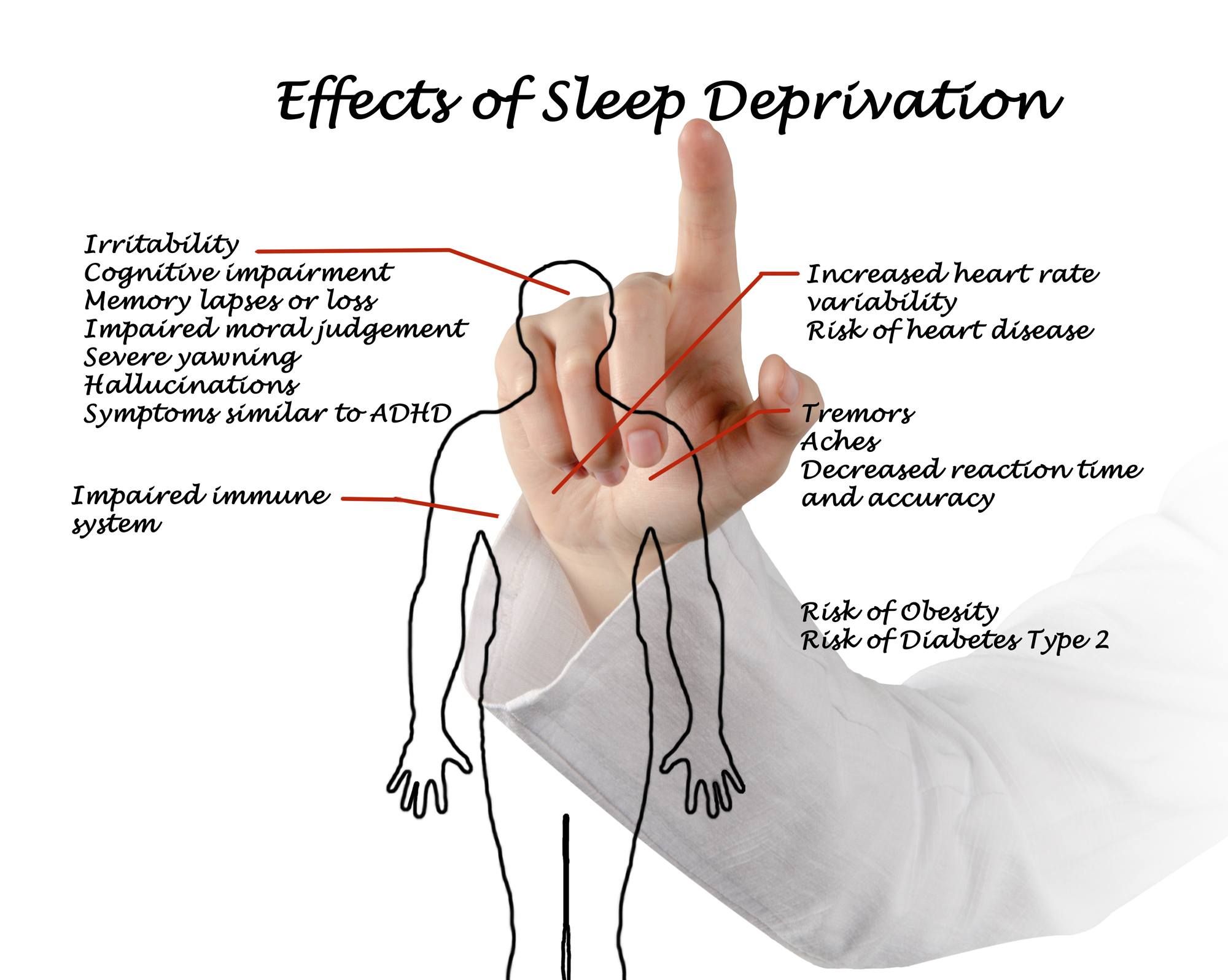
For example, melatonin, produced when you sleep, could prevent cell damage that can lead to cancer and bad sleep habits can trigger dangerous inflammation within the body.
Sleep is like nutrition for the brain; good quality sleep can help lower your risk of dementia, according to US research. Scientists think that during sleep, your brain is 'cleaned' and substances called beta-amyloid plaques, linked with Alzheimer's, are removed.
Sleep is divided into three types; light, deep and RIM (or dreaming) sleep Cut down on sleep and our bodies will compensate by automatically cutting down first light sleep and then, if necessary, REM sleep, too.
If sleep deprivation continues long enough, you could start having hallucinations — seeing or hearing things that are not there. A lack of sleep can also trigger mania in people who have bipolar disorder.
Other psychological risks include:
You may also end up experiencing microsleep in the day. In many cases, sleep-deprived individuals may not even be aware that they are experiencing these microsleeps and it and be dangerous if you are driving and is the leading cause of driving fatalities. In the elderly, you more prone to acquiring a significant injury due to trips and falls.
Sleep disorders are a group of conditions that affect the ability to sleep well regularly. Whether they are caused by a health problem or by too much stress, sleep disorders are becoming increasingly common. In many cases, sleep-deprived people may not even be aware that they are experiencing these microsleeps.
Dreams
Dreams have a function, but perhaps not the one you suspect. It's believed that REM/dream sleep mediates memory consolidation and mood regulation.
It is like overnight therapy, but when you're deprived, you are more likely to focus on the negative, which can not only increase the risk for depression and anxiety but also eat away at your resilience.
If you are sleep deprived, you're most likely dream deprived, too. When you do not give yourself time to cycle through the five phases of sleep—REM and the earlier, progressively deeper stages—REM is sacrificed first.
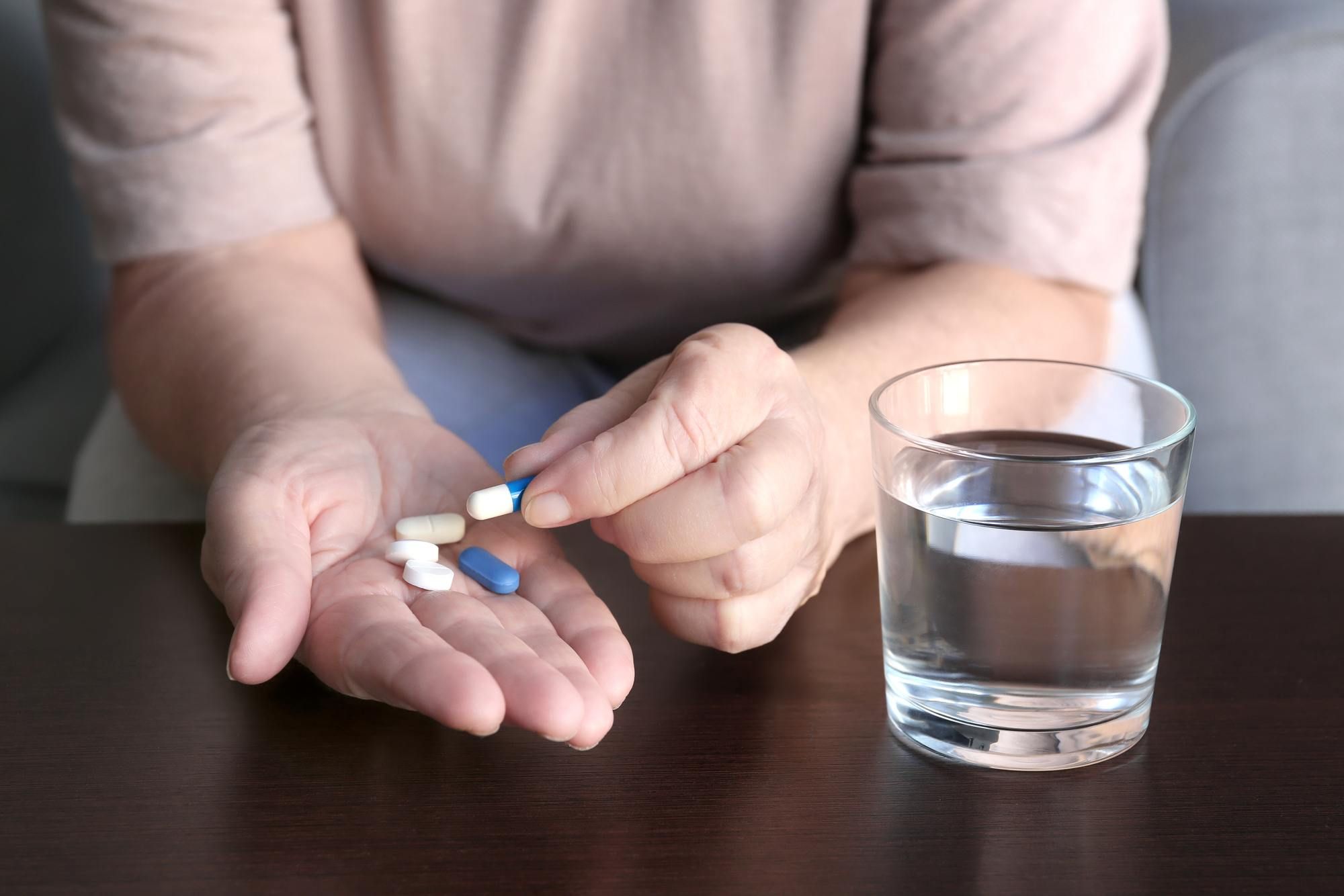
Sleep disorders and generally falls into three categories:
People older than 65 have trouble sleeping because of ageing, medication they are taking, or medical problems they are experiencing.
Sleep deprivation is common with depression, schizophrenia, chronic pain syndrome, cancer, heart disease, stroke, Parkinson disease, and Alzheimer’s disease.
Nocturia, or frequent urination, may disrupt your sleep by causing you to wake up during the night. Hormonal imbalances, diabetes, alcoholism, and diseases of the urinary tract may contribute to the development of this condition. (Be sure to call your doctor right away if frequent urination is accompanied by bleeding or pain.)
Many people experience occasional sleep deprivation for other causes, including stress (eg.financial, new job, divorce, new home or exam etc.), a change in schedule, or a new baby disrupting their sleep schedule.
Any parent of a poorly sleeping child will tell you that a persistent lack of sleep is one of the most exquisite forms of torture ever invented.

Sleep specialists say that one of the best indicators of sleep deprivation is feeling drowsy during the day.
Even if a task is tedious, you should still be able to stay alert during it if you are not sleep-deprived. Likewise, if you regularly fall asleep as soon as your head hits the pillow; it is not proof that you're a good sleeper. In fact, it's more likely an indication that you're sleep deprived. In general, it should take about 10 to 20 minutes for a person to drift off.
Sleep apnea occurs when your airway becomes blocked during sleep. The airway closes which causes you to wake up briefly to take a breath, often without realising it. This can occur as often as 30 or more times per hour, according to the National Heart, Lung and Blood Institute . night, causing you to have a severely disrupted sleep cycle.
It is estimated that between 40% to 60% of people with insomnia also have sleep apnea. A review was published in the Singapore Medical Journal in 2005 that looked at the causes of insomnia. 106 applicants were studied in a sleep clinic. Around 42.5% of patients had obstructive sleep apnea (OSA).
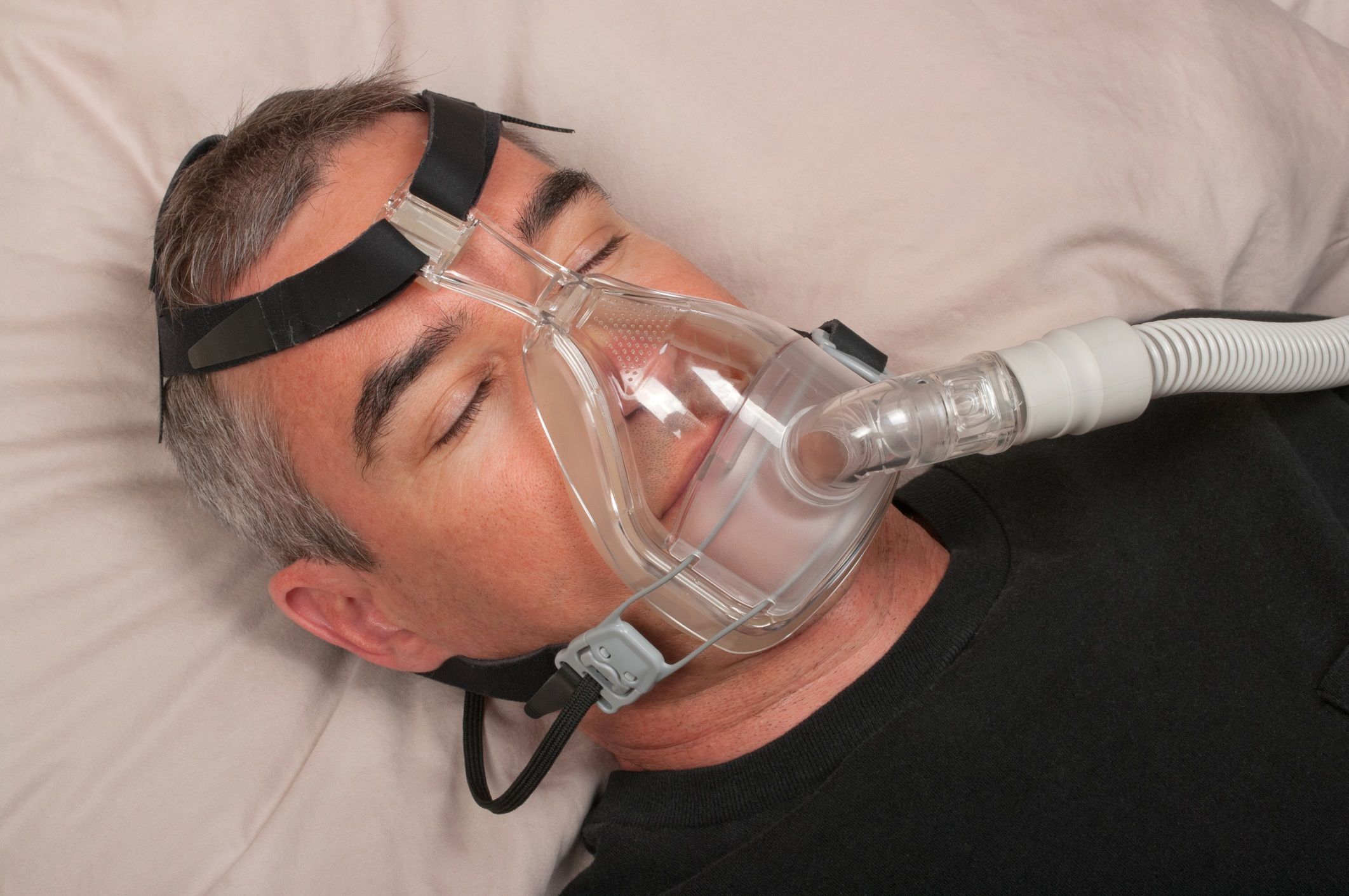
There are two main types of sleep apnea: obstructive sleep apnea and central sleep apnea.
In obstructive sleep apnea (OSA), the airway becomes partially or fully blocked during sleep. This may happen because the muscles of the throat and tongue relax more than they should during sleep, which hinders airflow to the lungs.
Other factors that can lead to a blocked airway during sleep include having tonsils that are large compared with the opening of the windpipe, and being overweight, which can narrow the inside of the windpipe.
A blocked airway can lead to a drop in blood oxygen levels, which triggers the brain to arouse you from sleep so that your airway reopens. This awakening may be so short that you do not remember it.
Central sleep apnea is less common than obstructive sleep apnea. With central sleep apnea, the brain stops sending signs to the muscles that allow you to breathe.
The condition may be due to other medical problems, such as problems that affect the brain stem, Parkinson's disease, obesity and heart failure.
People are at increased risk for obstructive sleep apnea if they are overweight/obese, are older than 60, or are male — men are twice as likely as women to have sleep apnea, according to the Mayo Clinic .
Approximately 22 million Americans may suffer from sleep apnea and around 80 per cent of moderate and severe obstructive sleep apnea goes undiagnosed. Obstructive sleep apnea is also associated with an increased incidence of affective disorders, such as depression and anxiety. ( JAMA 2019)
If you have insomnia from sleep-apnea, medications will not help, only Continuous Positive Airway Pressure (CPAP) treatment can help by opening your airways. Talk to your doctor about having a sleep study done to see if you have obstructive sleep apnea.

Food Allergies
Food allergies can cause insomnia, generally because of the discomfort they create. Wheat allergies and lactose intolerance can result in an upset stomach, swelling and itching, all of which can make it hard to fall asleep.
When eating something you are allergic to, histamine goes into your brain, disrupting neurotransmitters. Histamine in the brain throws the biochemical pathways out of whack, which causes insomnia.
Some common food sensitivities and allergies that cause insomnia:
Food allergies cause the immune system to set off a bunch of inflammatory processes that can affect many different parts of the body, which can drastically affect the ability to sleep:

According to medical studies, there is a connection to insomnia and hay fever. People with hay fever are twice as likely to suffer insomnia than people who have no allergies.
Conditions such as allergic rhinitis, with symptoms including itching, sneezing and runny nose, cause you to take a longer time to fall asleep. They are more likely to wake up in the night, nap during the day and get tired quickly, all of which are symptoms of insomnia.
The hay fever is a result of an allergen causing an allergic reaction in the mucous membrane in the nasal passages. The lining expands and cuts down on the flow of oxygen into your system. The result is that you gasp for air, cough and sneeze which makes it very difficult to fall asleep.
To treat allergies that create insomnia, talk to your health care professional about what might be the source of the allergy; is it dairy, dust, hay fever, gluten sensitivity or something else?
Pinpoint the specific allergy and seek help from your GP while avoiding the source or use medication to treat it if it is unavoidable. If you cannot pinpoint the source, see an allergist who can run blood and skin tests to figure out what is troubling you specifically.
Restless leg syndrome (RLS) is a neurological condition that affects 1 in 10 people at some point in their lives. It is the overwhelming need to move the legs while at rest and the discomfort of it causes insomnia. RLS sufferers on average get less than 5.5 hours of sleep a night. The feeling of it can be anywhere between just uncomfortable up to painful.
A recent study was carried out that showed that patients with restless leg syndrome had very elevated glutamate levels. The more disturbed sleep a person had, it turned out, the higher their glutamate levels. Fortunately, drugs are now available that reduce glutamate levels. It is possible to treat both conditions at the same time.
Not everyone with narcolepsy has the same symptoms. Some people have symptoms regularly, while others are less frequently affected.
Symptoms may develop slowly over many years, or suddenly over a few weeks.
Narcolepsy is usually a long-term (chronic) condition, although some of the symptoms may improve as you get older.
You should see a GP if you think you may have narcolepsy so they can find out what is causing your symptoms.
If necessary, you will be referred to a sleep disorder specialist who can confirm the diagnosis.
Find out more about diagnosing narcolepsy .
Excessive daytime sleepiness
Excessive daytime sleepiness is usually the first sign of narcolepsy. It can have a significant impact on everyday life.
Feeling drowsy throughout the day and struggling to stay awake makes it difficult to concentrate at work or school.
People with narcolepsy may be misjudged as being lazy or rude.
Sleep attacks
Sleep attacks, where you fall asleep suddenly and without warning, are also frequent in people with narcolepsy. They may happen at any time.
The length of time asleep attack lasts will vary from person to person. Some people will only have "microsleeps" lasting a few seconds, whereas others may fall asleep for several minutes.
If narcolepsy is not well controlled, sleep attacks may happen several times a day.
Most people who have narcolepsy also experience cataplexy, which is sudden temporary muscle weakness or loss of muscular control.
Typical symptoms of cataplexy are:
the jaw-dropping
the head slumping down
legs collapsing uncontrollably
slurred speech
double vision or finding it difficult to focus
Cataplexy attacks are usually triggered by an emotion, such as excitement, laughter, anger or surprise.
Attacks can last from a few seconds to several minutes.
Some people with narcolepsy have cataplexy attacks once or twice a year, while others have them several times a day.
In an attempt to avoid attacks, some people may become emotionally withdrawn and socially isolated.
Some people with narcolepsy experience episodes of sleep paralysis. This is a temporary inability to move or speak that occurs when waking up or falling asleep.
The episodes can last from a few seconds to several minutes. Although sleep paralysis does not cause any harm, being unable to move can be frightening.
Other symptoms
Narcolepsy can also cause many other symptoms, including:
Seeing or hearing things that are not real, particularly when going to sleep or waking up; a presence in the bedroom is the most commonly reported hallucination
Speak to a GP if you have narcolepsy and it's making you feel low or depressed.
They can advise you about how to minimise the effect narcolepsy has on your daily life.
They can also put you in touch with narcolepsy organisations or support groups, such as Narcolepsy UK .
Depression and Anxiety
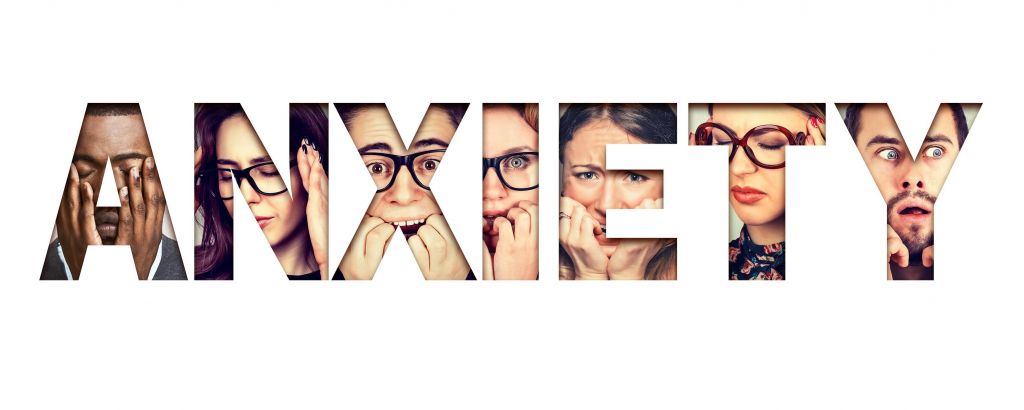
Anxiety, depression and insomnia seem to be so closely correlated that they can be a vicious cycle. Studies show that insomnia can lead to anxiety and depression. People with chronic insomnia should not only be treated for insomnia but also be closely monitored for the development of anxiety and depression.
In general, a person with an anxiety disorder will have trouble falling asleep but they will then sleep soundly through the night. Someone with depression can fall asleep easily but they will sleep lightly and wake up throughout the night.
Chronic insomnia can be a symptom of mental health problems. Upon detection of insomnia, look closer for emotional disorders which could improve early detection. Treating chronic insomnia can reduce the risk of developing a mental or emotional disorder.
Chronic Pain
For some people, chronic pain not only makes it harder to fall asleep but can also interrupt sleep. People with pain also feel less control over their sleep, worry more about lack of sleep affecting their health and exhibit higher sleep sensitivity.
They are more likely than others to say environmental factors make it more difficult for them to get a good night’s sleep. These factors include noise, light, temperature and their mattresses alike, suggesting that taking more exceptional care of the bedroom environment may be particularly helpful to pain sufferers.

Did you know that chronic pain is a very common cause of insomnia. Up to 80% of people who suffer from chronic pain also experience sleep disorders such as insomnia, which makes sleep elusive.
To make matters worse - chronic pain harms your sleep cycle and having a damaged sleep cycle can aggravate your chronic pain by reducing your pain threshold. Our pain threshold falls about 15 percent after just one night of insufficient rest. Also, chronic pain can cause mental and emotional distress; another factor in insomnia.
One way that chronic pain might reduce your ability to fall asleep is that it is good to have a quiet environment to fall asleep.
This causes difficulty because, in a quiet environment, there are no distractions from the pain. Patients often report that the best way for them to manage the pain during the day is to find distractions from it such as reading, socialising, listening to music and watching TV.
At night, when those distractions are unavailable, the perception of the pain becomes worse as they lay quietly with nothing else to consider but the pain.
The longer they lay in bed, exposed to the pain, the worse the situation becomes. Another unfortunate factor is that a patient will feel distressed at the thought of yet another painful night, waiting for exhaustion to overpower the pain, which makes the situation worse.
Opioids are often used to treat chronic pain but the downside is that they can disrupt the sleep cycle and prevent a patient from getting into a deep sleep. Opioids can also cause sleep-related breathing problems.
Waking up several times in the night is common for chronic pain patients. A sufferer might experience many “microarousals” per hour of sleep which leads to waking up.
This causes a massive intrusion into the sleep cycles, leading to non-restorative sleep. This, in turn, can cause worse pain the next day, tiredness, low mood and lowered energy levels.
Options for treatment vary but one thing is known - treating insomnia can reduce your chronic pain.
The first step is to rule out any other conditions that might also be aggravating insomnia.
Look for complications such as PTSD, depression, medications or other sleep disorders such as restless leg syndrome . Once those have been investigated and eliminated, it is time to work on chronic pain.
If a condition, such as sleep apnea, is damaging your sleep you need to treat it first. Treating the sleep apnea will improve your sleep and thereby, reduce the chronic pain.
Many physicians will work to aid chronic pain holistically before using medications as a sleep aid. One treatment is talking therapies like cognitive behaviour therapy (CBT) and or mindfulness. It encompasses changing thoughts and behaviours regarding sleep.
This type of therapy is often the preferred source of helping with chronic pain and sleep because there are no side effects that can come along with sleep aid medication and it is a long-term solution.
Keep a sleep journal to record the hours you sleep, if you are waking up in the night, daytime napping, emotions and the pain you are experiencing. These things combined can help you get some relief from the pain and insomnia.
Recently cannabidiol (CBD, as it has more commonly known) has gained a whole new health-promoting reputation as products containing it fly off the shelves, from skincare and salad dressings to tinctures, edibles and sprays.

The World Health Organisation (WHO) reported that CBD might ease the symptoms of conditions ranging from MS, Alzheimer's disease and Parkinson's, to pain, depression, anxiety and even cancer. The substance has also been shown to be effective in the treatment of insomnia, itself often an adjunct to mental health conditions.
In 2017, an analysis of various clinical trials was published and co-authored by clinical scientist Kimberley A Babson (Cannabis, Cannabinoids, and Sleep: A Review of the Literature). She concluded that yes, initial research is showing that medium-high-dose CBD is helping people improve their sleep and reduce pain.
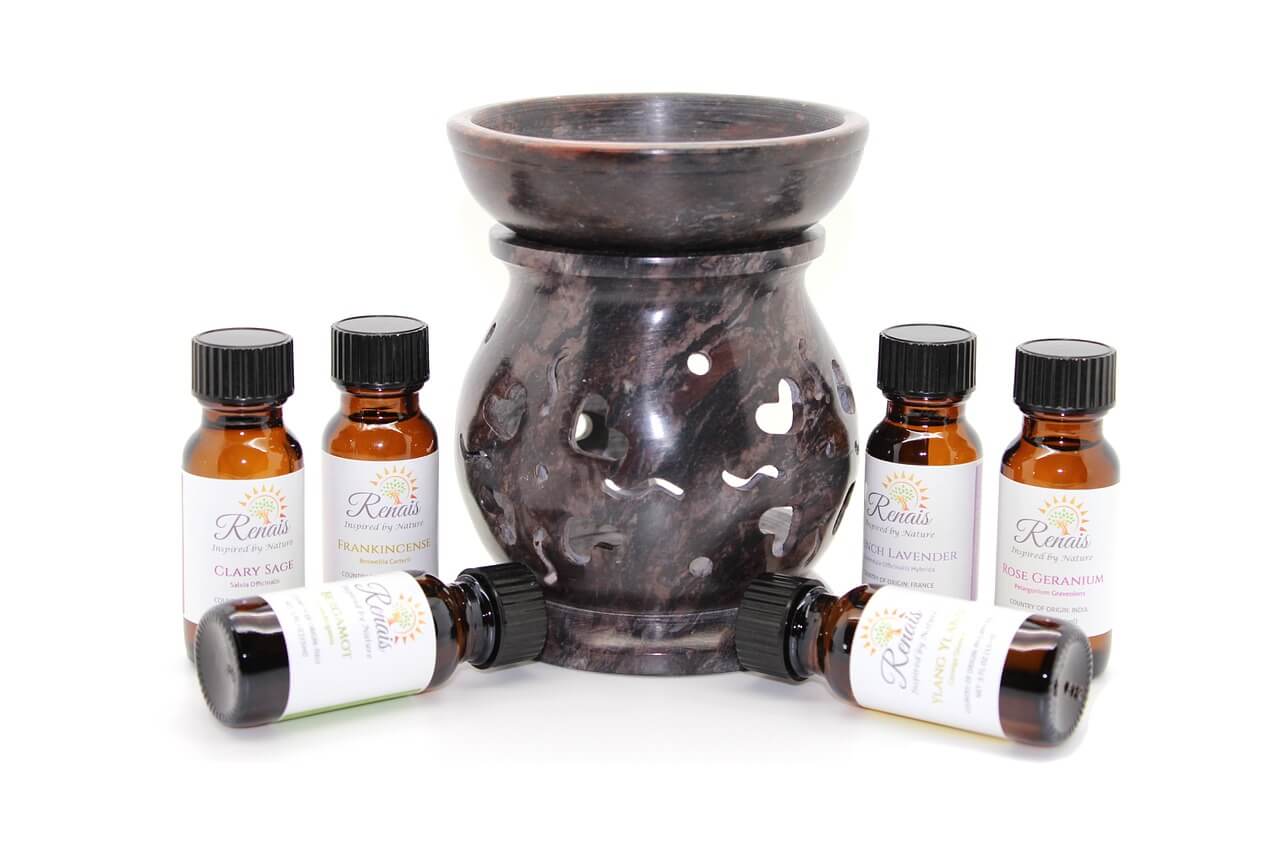
In a country like the USA and many other countries, when one is confronted with pain, one often heads out to the nearest drugstore to stock up on medications and creams to soothe away the pain and all the troubles associated with it.
We are quick to reach out for the famed Aspirin, trusting that it will heal the pain. Furthermore, when it comes to aching and tight muscles, we do not hesitate to call on something like ibuprofen. We trust in our doctor usually and we trust in his writing out a prescription for medicine that will quickly take pain and fever away so we can quickly get back to living life on the edge again.
Nevertheless, did it ever occur to you that there are ways from Nature itself to deal with pain without you needing to reach for the conventional type medications, most of which also include other chemical content as well?
Have you ever considered that plants from nature have the capacity to heal not only light pain but chronic and serious pain too?
Essential oils are miracle workers, getting down to business and penetrating your cells quickly, providing you with oxygen and even improving the circulation to your joints that are writhing in pain from inflammation.
Sometimes when we are on the sports fields, we can often catch the smell of wintergreen, but it is because it pays special attention to problems like a herniated disk, neck pain, nerve pain and carpal tunnel pain as well.
Relaxing lavender balances the body and helps to fight against inflammation.
A person can suffer from crippling joint and bone pain for many reasons. Ageing is one reason but injury and trauma to these parts of the body can also bring on the pain. Bone and joint pain are to be found more amongst middle-aged people and not so much in the young unless it is an injury.
However, it is because as a person gets older, their bodies go through life changes, including a decrease in the density of the bones. Joint and bone pain usually do require medical attention from your general practitioner, but still, there are essential oils that go a very long way in helping one to cope and to manage this type of pain.
Ideal, essential oils for back and joint pain are lavender, clary sage, eucalyptus, rosemary, juniper, yarrow, and clove, to mention a few.
Essential oils that can alleviate some of that nausea, pain, discomfort, and stress. These are some excellent essential oils for muscle pain that are known to soothe and comfort:

When used topically, lavender can clean up a wide variety of irritations and absorbs deeper into the skin than your average oil, which means that your inflamed, irritated joints or area of discomfort will get longer-lasting relief, which makes lavender a natural choice for a blended oil you are planning to put directly on your skin.
You can also use lavender in the bath or diffuser to help clear your mind and relax your mind and joints, which means picking up a bottle of lavender straight can be a beneficial investment, especially if you enjoy lavender.
Here is an interesting tip: if one of your arthritic symptoms involves tensing at the joints and the muscles surrounding it, it’s not uncommon to get a headache from it. Mixing lavender and vetiver will relax most tension headaches and boost the efficiency of your brain with extended use, meaning you will be able to pick up on your next flareup before it happens.
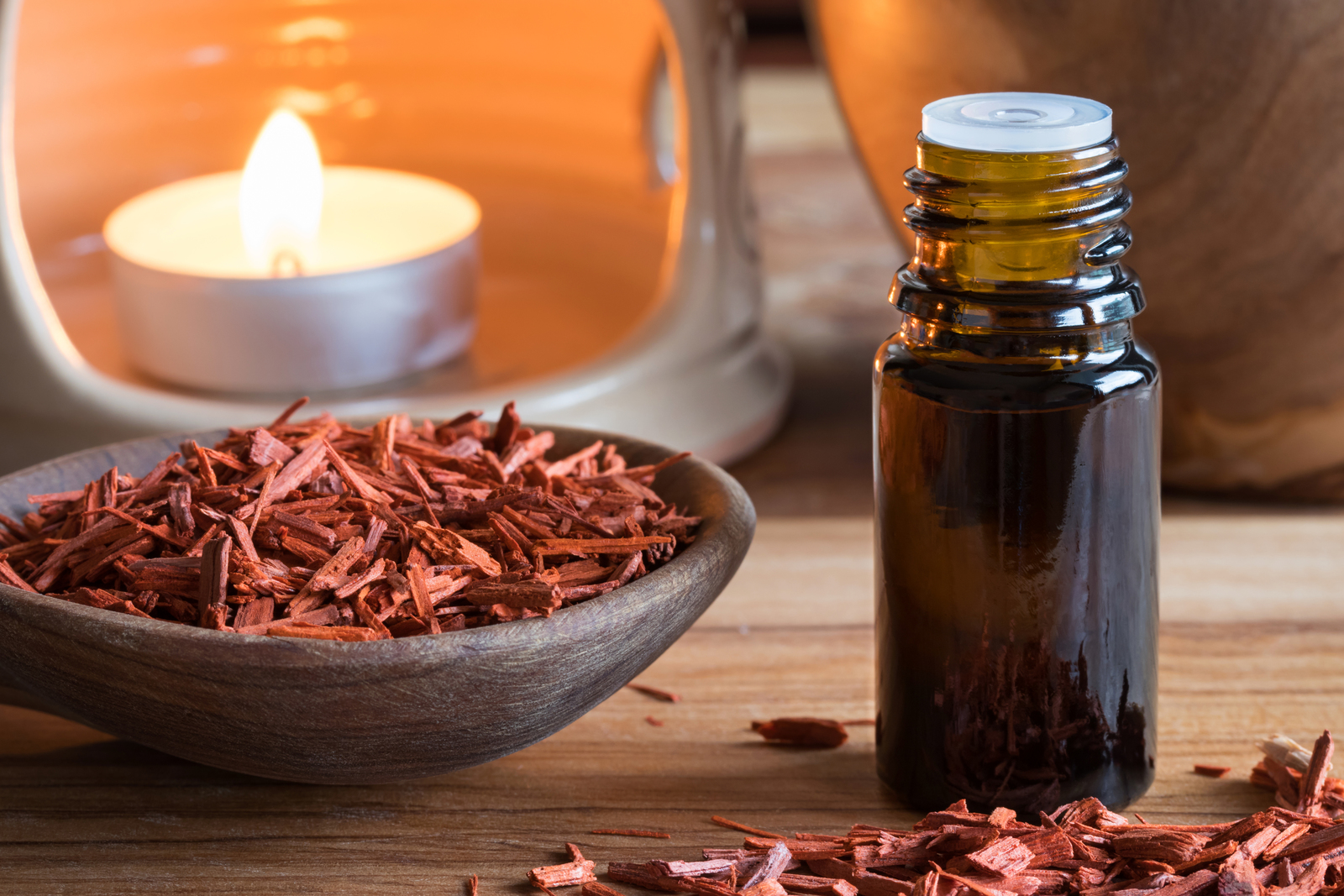
The woody, sweet, aromatic scent of sandalwood is burned in Hindu and Buddhist temples. 'The scent instils a sense of peace and tranquillity, It can be very relaxing, alleviates anxiety and eases mental fatigue. It is also restorative and emotionally grounding. If you're having problems sleeping, sandalwood will help you to switch off from the stresses of the day. Studies have shown that it contains components (santanols) that have a natural sedative effect.
You’re going to be hearing a lot about frankincense if you are serious about looking into essential oils and aromatherapy, especially for things like arthritis. This is likely to be one of your more expensive investments, but the power of frankincense has been so well-established and researched that you can find it in almost any source of information of life during the Biblical times.

Frankincense has been used for its anti-inflammatory powers, antioxidants, and its antibacterial properties. Some people even use it today to keep their kitchens and bathrooms clean! On a more spiritual level, frankincense can be used to cleanse your home and your soul, which is probably referencing that peaceful feeling that washes over a person after about a half an hour after using it.
Frankincense has a beautiful, almost spicy scent to it, and can be used by itself or with others. Ginger and vanilla are both excellent choices to use with it, but its been noted to be at its most elevated when you mix it with the next item on the list. If you are a little hesitant to try it out for yourself and paying the premium for the oil, consider getting a well-crafted incense that uses frankincense. It’s a lot easier escape frankincense when its an incense than it is to escape it if it’s on your body, and you will be getting quite a bit of benefit from the incense as well.
The sweet, heady scent of jasmine is as calming as Valium but with none of the side effects. Researchers at the Heinrich Heine University, Dusseldorf, found that the scent of this delicate white flower has the same calming, sedative effect on the central nervous system as commonly prescribed sleeping pills and sedatives.
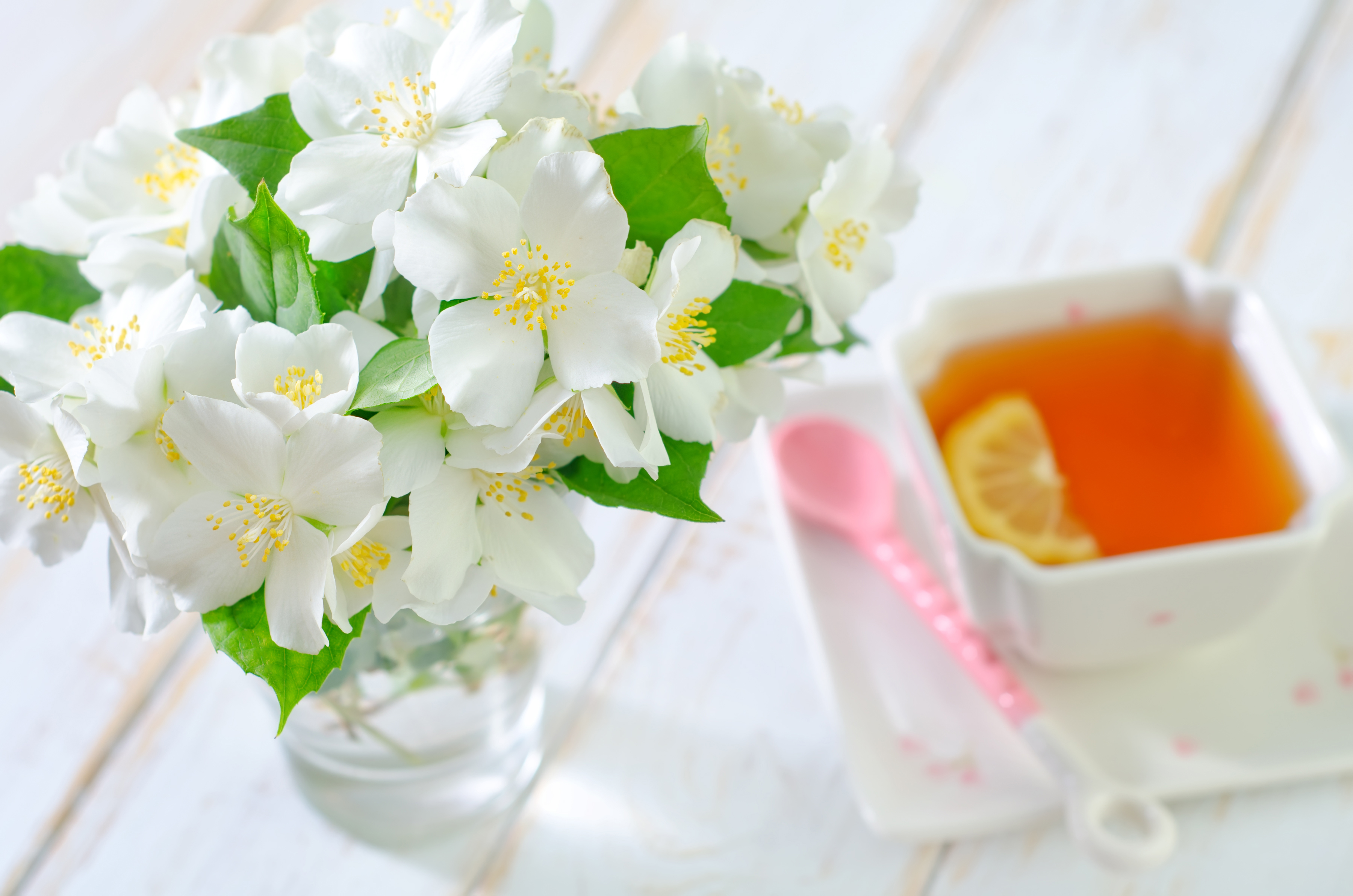
Brain scans showed that inhaling jasmine molecules enhanced the effect of gamma-aminobutyric acid (GABA) - an amino acid produced naturally in your brain - by more than five times. GABA promotes relaxation, reduces stress and anxiety, balances mood and helps you sleep better. Add two to three drops of jasmine essential oil to 15ml of base oil such as grapeseed or jojoba and massage it into your skin before going to bed.
Bergamot is an interesting little oil because it can be used in a variety of ways with virtually any other oil you can think of! It improves blood circulation and can even numb pain receptors when placed directly on to the skin. As these tend to result in muscle tissue relaxing, this makes it a perfect choice for someone whose pain can best be described as cramp or spasm like.

You might also be interested in the fact that it’s long been used for healing wounds faster and can even stop the development of tetanus, and you might already be getting a decent dose of it in your everyday life.
If you are a fan of earl grey tea, then you already love bergamot.
Most people find the sweet, dry citrus aroma of bergamot essential oil very appealing and gently uplifting. It is also good for stress and will leave you feeling more relaxed so you get a better night's sleep
Since bergamot is actually photosensitive (it doesn’t like the light), wearing it is typically not your best bet, but there are some well-known alternatives.
If you mix bergamot with lavender and chamomile, then put into a hot bath or open the bottle during a hot shower, you will get a perfect mix of pain relief and a great night’s sleep after. Finish off with a moisturising avocado and olive oil rub. If you don’t like to bathe before bed, you can always spray your pillow to get a similar effect, but heat therapy will significantly increase the success of getting it to your affected joint.
Much like its brother, frankincense, myrrh has quite the list of anti-inflammatory properties, but myrrh is actually a lot more than that. Myrrh has been proven to boost the mood of its users.
The scent of myrrh is one of a smooth, perfumed oil that will fade into a faint wood fire after it is lit for incense.
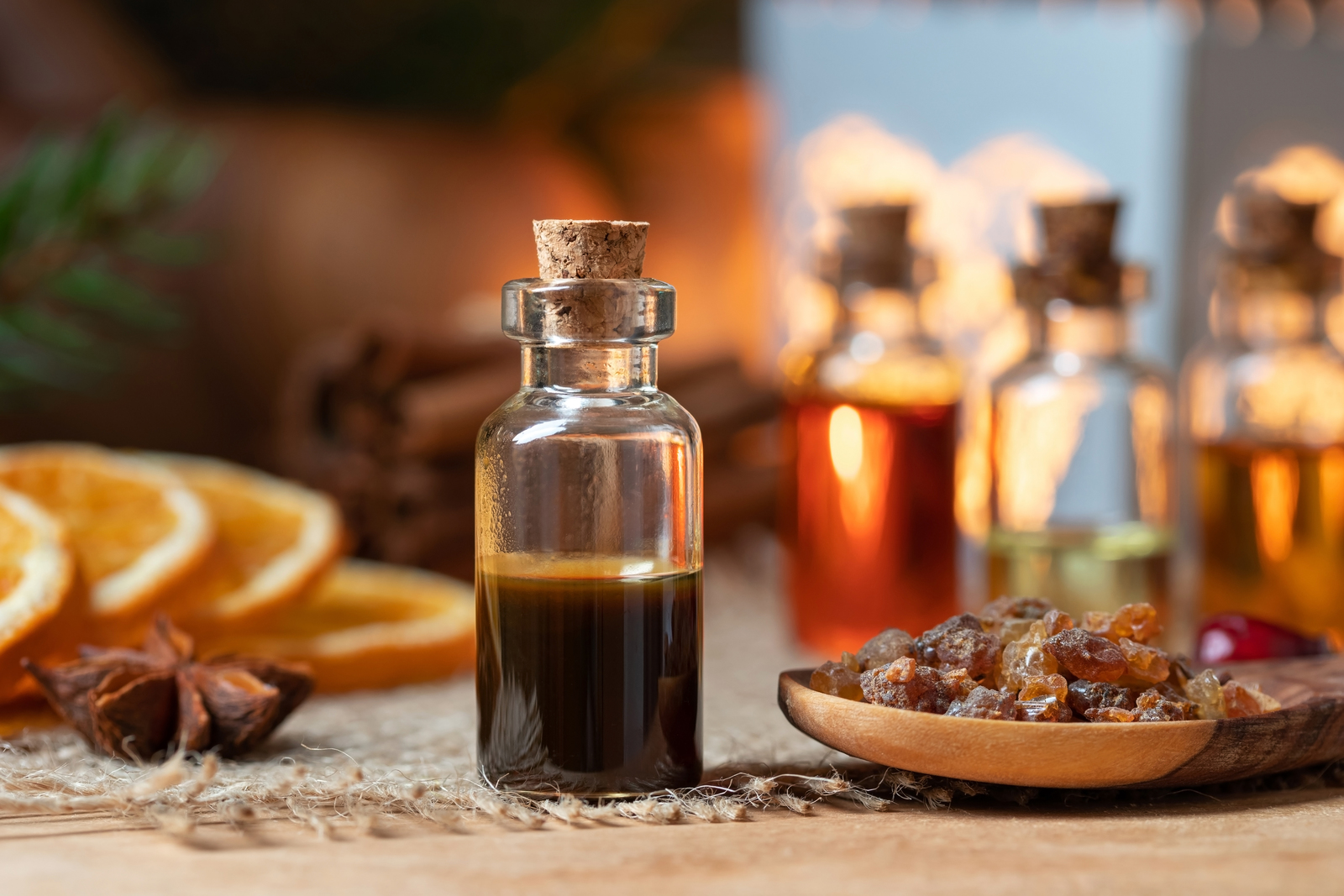
If you close your eyes and imagine yourself in one of the higher societies of two or three thousand years ago, myrrh is the smell that you are imagining, especially if you are a fan of ancient Egypt, where myrrh was the oil of choice for receiving favour of the beautiful goddess Isis, who was grieving over the death of her husband when she first came across the myrrh tree. Other beautiful blends include sandalwood and jasmine, which will still take you to another time and place.
This sweet, exotic, sensual smell is so good they named it twice! 'Ylang ylang is best known for its aphrodisiac and mood-enhancing properties. It is also a fantastic sleep tonic. The scent reduces blood pressure and heart rate and eases anxiety, helping you to unwind physically and mentally gently.
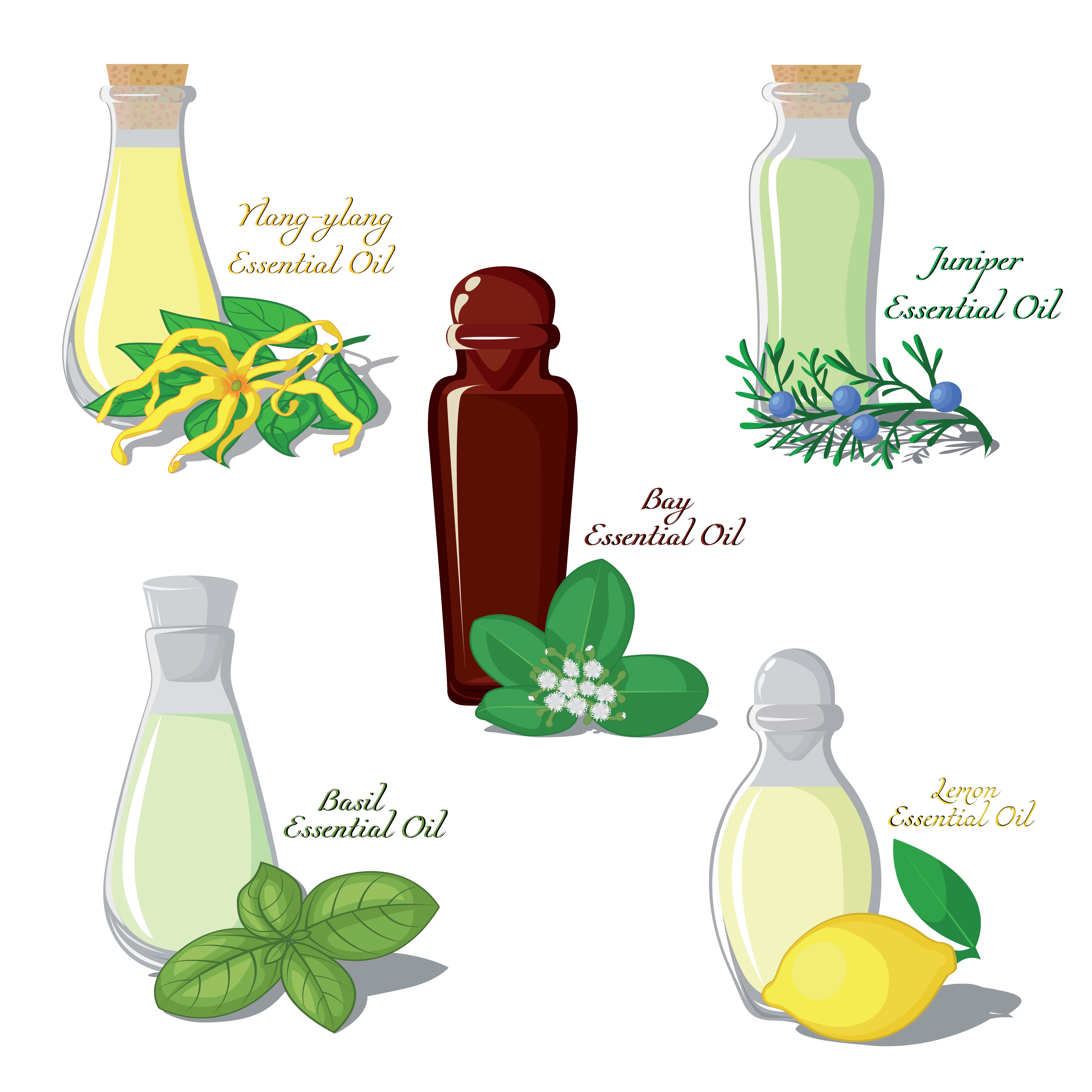
For a powerful sleep blend, combine a few drops with sandalwood and clary sage. Or, add two drops of ylang-ylang and two drops of vanilla essence or essential oil to 20ml of body butter or lotion, then dab on your wrists, shoulders and upper chest and any area of discomfort.
The funny thing about turmeric is just a little bit goes a long, long, way, so you don’t need to have it be the major note in your aroma blend. Turmeric’s smell is a little overwhelming for some people. When making your blend, consider doing something like ylang-ylang and vanilla.
Ylang Ylang is great for killing bacteria that turmeric might miss, and vanilla will not only round out the scent but will help you more relaxed and keep the pain from coming back while you’re asleep.
Consider a turmeric latte that will also help you sleep and see snooze foods.
go to snooze foods
Clove
Anyone who has ever had bad tooth pain probably has covered this for you. Clove is a natural antiseptic and is strong enough that it can numb even deep-rooted nerve pain. This is because of eugenol, which can give someone with arthritic pain precisely what they need to get through the next few hours without much of an issue.
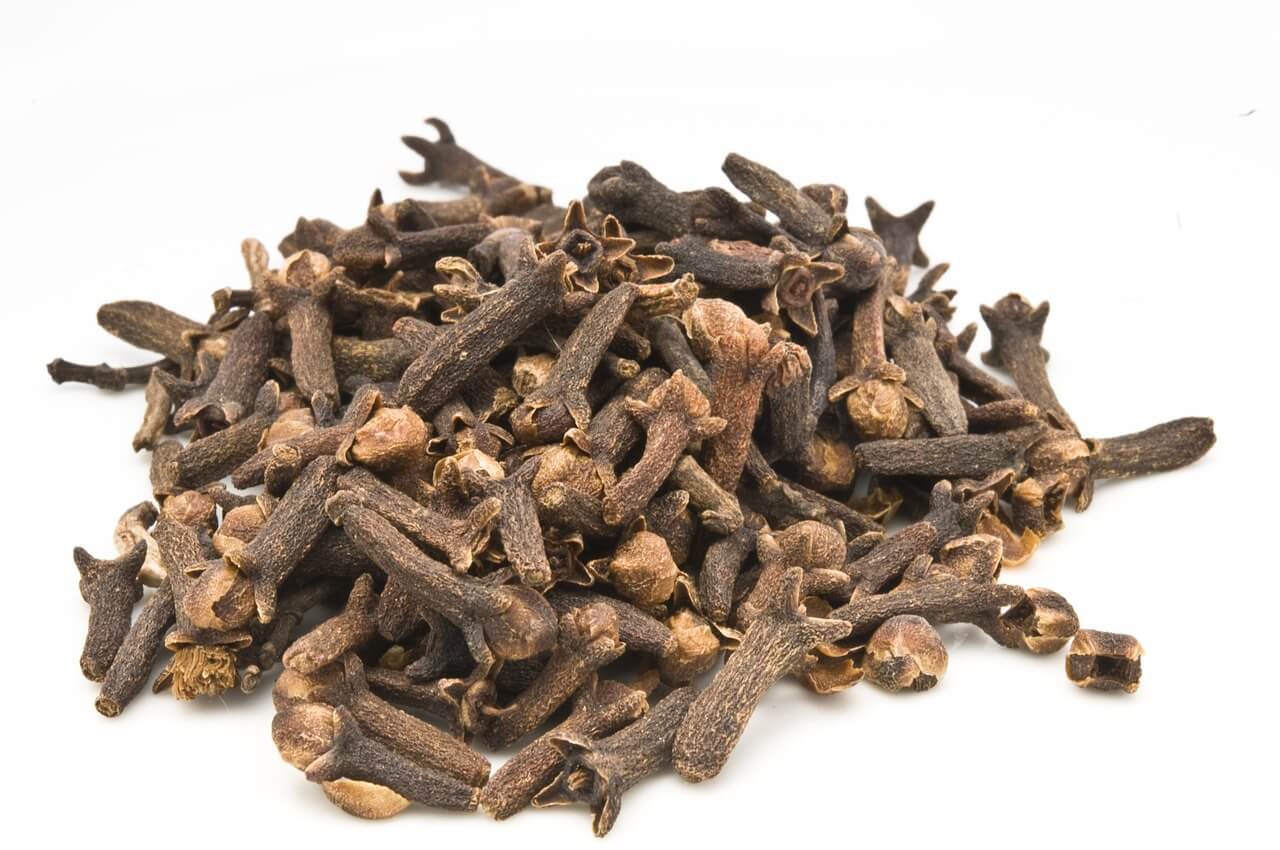
Clove isn’t exactly for the faint of heart, though, as pure clove oil can cause burns, much like peppermint, but should not be taken internally without noteworthy consideration.
However, use clove oil for candles and baths without much risk. If you want to use it topically, you can make a variety of exciting mixes that will offer you much fast-acting relief.
A favourite for many is to mix it with orange because the scent is quite flattering and festive. Peppermint and clove as a mix are a powerful one if you want to use the diffuser, and it will cover a wide range in your room. If you want to go with something a little gentler and will help you relax as well, consider using a rose or even lavender.
The following remedies are available from pharmacists or health stores. Choose the remedy that most closely fits your symptoms. Of course, if you can, consult a professional homoeopath.
ACONITE for acute insomnia, caused by shock, fright, bad news or grief. You may be woken by nightmares and have fear, anxiety and restlessness. You feel better for fresh air, in a cool room, and feel worse at night, in a warm, stuffy room, with heavy or stifling bedclothes.
ARENSICUM ALBUM for waking between 1am and 3 am because of anxiety or an overactive mind. You are sleepy during the day, but anxious at night. You are restless in bed, with anxious dreams and nightmares. You feel better for warmth, warm drinks and sleeping propped up in bed, and worse when alone, cold or drinking alcohol.
CAMOMILLA for irritable babies who refuse to be calmed, and sleeplessness caused by teething, anger or colic. They moan while asleep and their eyes are half open. They feel better when carried or travelling in a car, and worse after 9pm, after burping, in cold, windy weather, and when too hot.
IGNATIA for sleeplessness caused by shock, emotional stress or grief. You have mood swings, no thirst and your limbs jerk when falling asleep. You feel better for being distracted, worse for coffee and alcohol, cold and fresh air. You crave sweet things, but they make you feel worse.
LACHESIS for menopausal sleep problems. You may feel suffocated or hold your breath as you go to sleep. You awaken suddenly and it may feel as if the bed is swaying. Night sweats and anxiety are common, and you may awaken feeling unwell. You feel better for fresh air, but worse for tight clothes and warm, stuffy rooms.
NUX VOMICA for waking around 3 am or 4 am feeling bright and cheerful, and not sleeping again until just before usual getting-up time. Your sleeplessness is due to irritability, overwork or working late. You are drowsy in the evening and after food, suffer nightmares, and feel better for warmth, in the evening and when left alone. You feel worse for alcohol, overeating (especially spicy foods), noise and lack of sleep.
PULSATILLA for early waking with an overactive mind and/or recurrent thoughts. You have anxious or vivid dreams and night sweats, and throw off bedclothes feeling too hot, then pull them back as you feel cold. You feel better for cool drinks and affection, but worse in a stuffy room.
SEPIA for difficulty falling asleep. You wake up early feeling unrefreshed. You are exhausted and depressed by mental stress and overwork, and feel irritable and sleepy during the day. You suffer headaches, nausea and dizziness due to tiredness and night sweats. You feel better for naps, exercise and fresh air, but worse in thunderstorms or heavy weather.
SULPHUR for awakening at the slightest noise and finding it difficult to get back to sleep. You feel hot and thrust limbs out from under the covers. You have vivid nightmares, disturbed and unrefreshing sleep, wake in the early hours and then sleep late. You are kept awake by a continuous flow of ideas. You feel better for lying on the right side, but worse for stuffy rooms and a hot bed.
A doctor's standard response to 'I can't sleep' has often been to give a prescription for sleeping pills, but medical research is now showing that, far from being valuable lifelines, these drugs can cause more problems than they solve.
Many types of medications cause insomnia.
Since insomnia causes health problems on its own, it might be a good idea to reevaluate the medications you are taking. Sometimes, because sleep is so important, you might want to talk to you doctor about altering your dose, switching to a different medication, or exploring an alternative treatment.
The side effects of insomnia might be worse than the condition you have been prescribed the medication for.
Read a previous article on medication , (Are you hooked on potentially addictive prescription drugs).
Snoring can be a social and physical health problem, it’s correlated with a heightened risk of both heart attack (snorers have a 34 per cent greater chance of having one) and stroke (67 per cent).
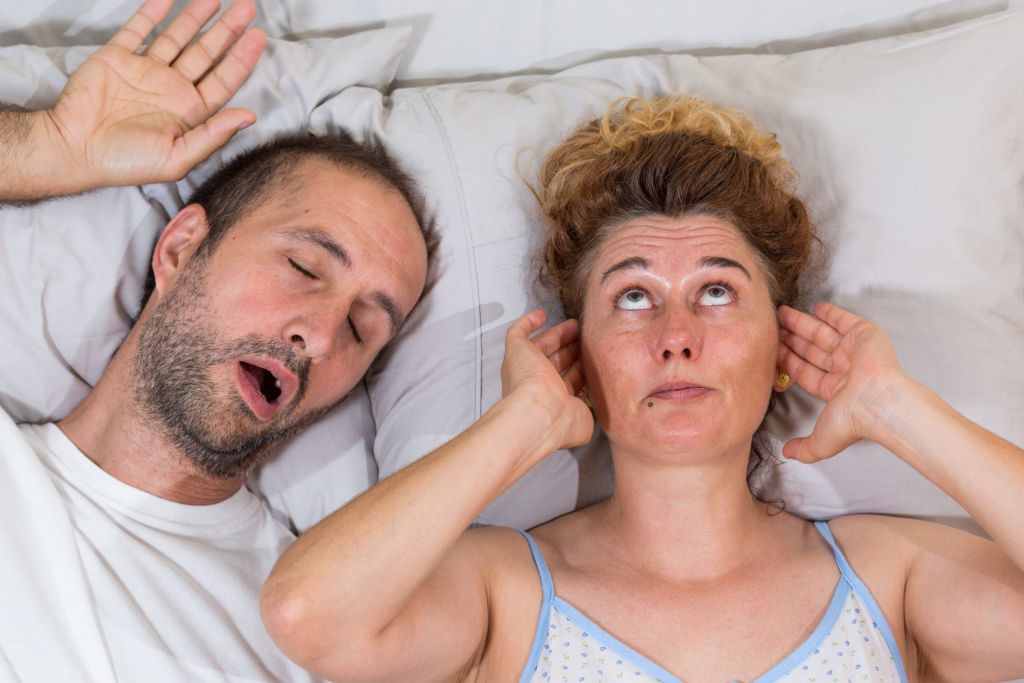
Other problems include sleep apnea, drowsiness, irritability, lack of focus and decreased libido. Sleeping with a snorer can take a toll on your health too because people who sleep next to snorers report high levels of fatigue and sleepiness and may even be at higher risk for hearing loss.
There are different levels of snoring. "If your wife moves out of the bedroom, then you snore at a moderate level, if your neighbours move out then you are a heavy snorer .
Men are much more likely to snore than women. In a study of more than 2,000 people in Toronto, sleep researchers Dr Earl V Dunn and Dr Peter Norton found that 71 per cent of men snored, while only 51 per cent of women did. In an Italian study, the difference was almost two to one in favour of men - or should we say, not in favour of women.
Moderate snorers are those "who snore every night but perhaps only when on their backs or only part of the night."
Snoring may not be music to your ears but when you breathe in, air causes this tissue of the soft palate to vibrate, and that effect is very similar to a wind instrument.
For those of you with sleeping partners who are considering not just separate beds but separate bedrooms, there are ways to help stop the music.
Going on a diet is top of the list for treatment because most snorers tend to be middle-aged overweight men and most women snorers are past menopause. There are many more treatment aids available.
However, you don't have to be obese to develop snoring. Just being a little overweight can bring on a problem.
Ignore the midnight Spirits "Alcohol before bed makes snoring worse, decreasing the sleep duration and increased wakefulness (particularly in the second half of the night).
Stay away from sedatives + sleeping pills may make you sleep, but they will keep your partner awake. Anything that relaxes the tissues around the head and neck will tend to make snoring worse — even antihistamines.

“Thou dost snore distinctly;There’s meaning in thy snores.”
William ShakespeareModern science is now proving what Shakespeare knew more than 100 years ago when he wrote those lines in The Tempest. In general, "The louder your snore, the more likely it is to lead to a medical problem."
One of the worst problems associated with snoring is a condition called sleep apnoea . "The person literally stops breathing," explains Dr Earl V Dunn. "People who are heavy snorers who stop snoring at night, can have episodes where they are not breathing."
Those most prone to sleep apnoea are "overweight middle-aged men," adds Dr Smith. "If you fall into that group, and you snore pretty loudly - that is, loud enough to be heard outside the room - the chances of your having sleep apnoea are pretty high. Go see your doctor."
If you are a heavy snorer and/or suspect you may have sleep apnoea, you should ask your doctor to refer you to a sleep clinic.

Some medications (prescribed or over the counter) can cause poor sleep and here is a list of some types of medications that might be the reason for your insomnia:
Alpha-blockers are prescribed to treat conditions including benign prostatic hyperplasia (BPH), high blood pressure and Raynaud’s disease. Alpha-blockers can be muscle relaxants and work to keep blood vessels open. Rapid eye movement (REM) sleep can be decreased and losing out on REM sleep can drastically increase daytime sleepiness.
Arrhythmias and hypertension are often treated with beta-blockers. The hormone adrenaline is blocked which lowers blood pressure and slows the heart rate. Beta-blockers are also prescribed to treat tremors, glaucoma and migraines.
They reduce your melatonin, which is a hormone that regulates your sleep cycle and keeps you asleep throughout the night. A simple way to combat this problem is to try a nightly dose of melatonin which is available over the counter.
Allergic reactions, rheumatoid arthritis, lupus and inflammation of the blood vessels are all often treated with corticosteroids. Corticosteroids can cause both insomnia and unpleasant dreams. One potential way to reduce the negative impact of this medication is to ask your doctor if you can take it in the morning.
Moderate to severe depression can be treated with selective serotonin-reuptake inhibitors (SSRI). SSRIs can cause insomnia, agitation and impulsivity for some. Up to as many as 80% of individuals on SSRIs have reported struggling with insomnia at some point and to some degree during their treatment.
It’s important to talk to a doctor if you are on SSRIs and you are experiencing insomnia as insomnia can severely exacerbate your depression. Altering dosage, switching medication or adding in melatonin at bedtime might be something you need to talk to your doctor.
Congestive heart failure and high blood pressure are often treated with Angio-converting enzyme (ACE). ACE inhibitors increase the body’s levels of a peptide called bradykinin. A third of patients on ACEs develop a dry hacking cough because of the bradykinin and the cough can go on all hours of the day and night. ACE inhibitors can also cause achy joints, diarrhoea and leg cramps.
If you are taking ACE inhibitors, consider talking to your doctor about switching to a benzothiazepine calcium channel blocker.
There are many more medications that cause insomnia. If you are experiencing insomnia and you think it might be linked to a medication you are on, do further research on your own and also talk to your doctor or pharmacist.
It is hard to maintain a high-quality life if you are suffering from insomnia, so it is worth the effort to consider changing or altering the medications you are taking for a separate condition.
To reduce your chances of being kept awake with insomnia and get a better night’s sleep, there are some pointers that all sleep experts agree upon.
Following a calming routine before bedtime can ease your path to a good night's sleep and include the following:
Do not look at your clock. Seeing the time can reinforce the fact that you are not getting enough sleep which can cause anxiety.
Turn the clock away so that you cannot see it. Darkness signals your body to release melatonin and kick-starts the physiological process that promotes sleep, like lowering body temperature, Even a dim light in the bedroom can inhibit the release of the sleep hormone melatonin. Only look at the clock if you are keeping a sleep journal.
Create a relaxing bedtime routine and avoid activities that keep the mind whirring, like watching TV, using a phone or playing video games before bed.
The presence of light during the day is hugely important for helping us function physically and stay alert. However, with the rise of technology, we are now, effectively taking this light to bed with us.
Unusually the 'blue' light of the spectrum, which is emitted from our electronic devices will inhibit sleep, and the shorter wavelengths within the blue light from the screen can trick your brain into thinking it is daytime.
The flickering images will stimulate the brain further and cause our body to produce less melatonin - the hormone that helps regulate and induces sleep. Therefore, avoid watching TV or using the internet in bed. Don't turn your bedroom into an office or den, if you want to go to bed, be prepared to sleep by making sleep a priority and schedule in 7 to 9 hours of it.
A study by the Journal of Clinical Sleep Medicine on exposure to bright, artificial outdoor lights during the night may result in sleepless nights for older adults. The more of this so-called light pollution that people were exposed to at night, the more they seemed to turn to medication to help them sleep.
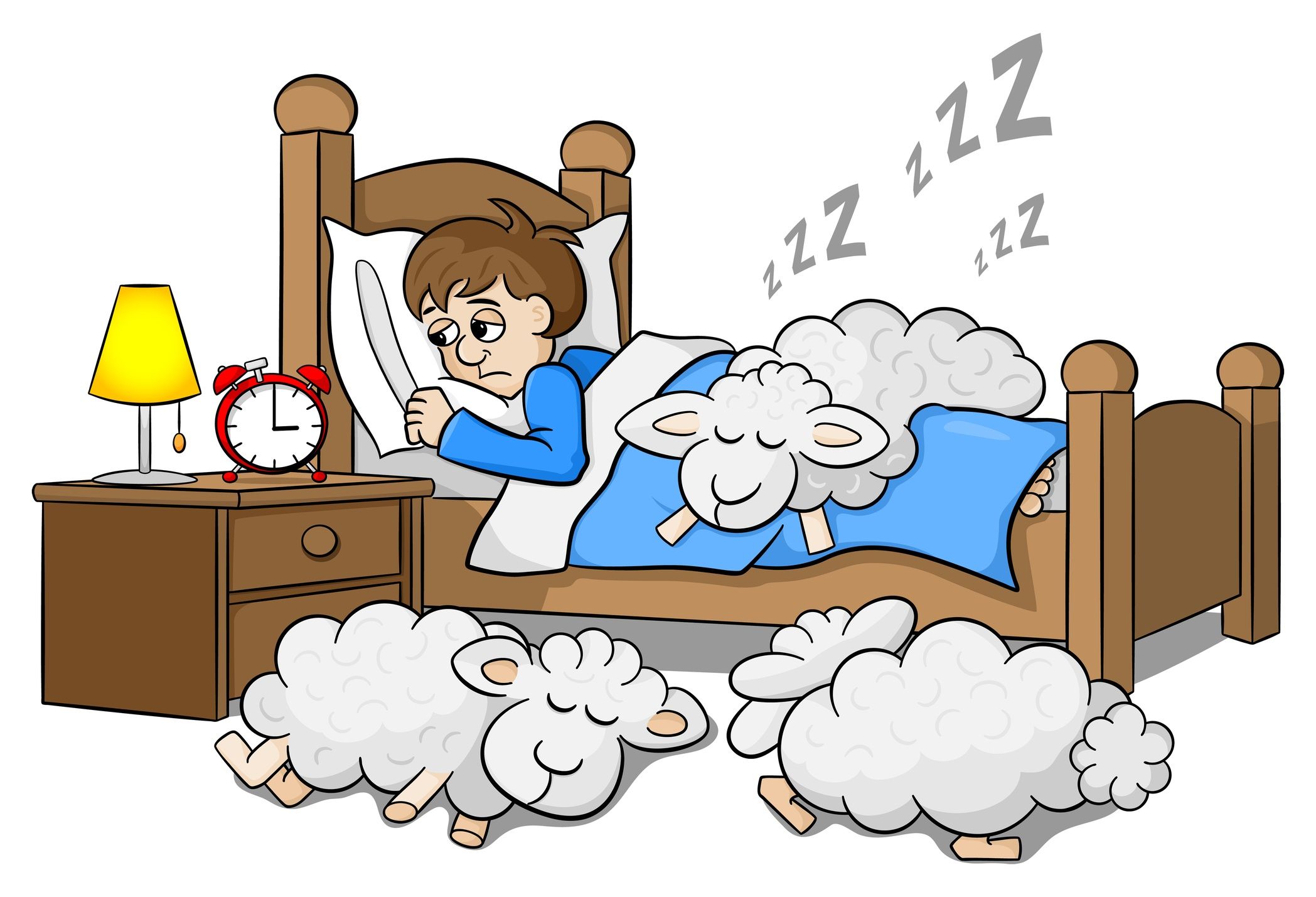
Develop a routine that incorporates your favourite relaxing activities. For example, listen to soft music in the bath 30 minutes before you plan on shutting out the lights. Instead of focusing on the discomfort in your body, switch to relaxing each part of your body instead. Follow the mindfulness muscular tension exercise suggestion which can be practised in a chair before bedtime.
Make sure your bedroom is cool, dark and quiet - there should not be any noise to disturb your sleep. Use a fan or some form of white noise to drown out the sound.
Consider introducing soothing scents to help you to relax.
Try to go to bed at about the same time every night so your body and mind know when to get ready to slow down.
Avoid heavy meals in the evening as a full stomach can be uncomfortable and disrupt your sleep pattern.
Avoid alcohol, cause dehydration and the need to visit the bathroom with increased heat generated as you burn off the excess calories will interrupt your sleep.
Coffee contains caffeine, which can affect some individuals, some are more sensitive than others to this stimulant.
Ensure your bed, mattress and linen are suitable and fit for purpose.
You spend one third of your time in bed, a good mattress is incredibly important, ensure it is suitable. Bed linen remains one of the most natural factors that can be altered for a comfortable sleep.
What you want to be aiming for is temperature regulation rather than just cooling, because otherwise, you can end up feeling too cold, or even cause your body to sweat more, as it tries to find a balance.
Make sure the room temperature is also right for you and the mattress supports the vertebrae in line from the neck to the hips. An old soft or lumby mattress will cause spine stress. If your mattress is uncomfortable, replace it!.
Surprisingly, wool - particularly that from the adorable alpaca animal. The natural thermo-regulating properties of alpaca wool make it ideal duvet material.
French flax linen can absorb up to 40 times more moisture than cotton, so it is also worth trying this fabric as a duvet cover.
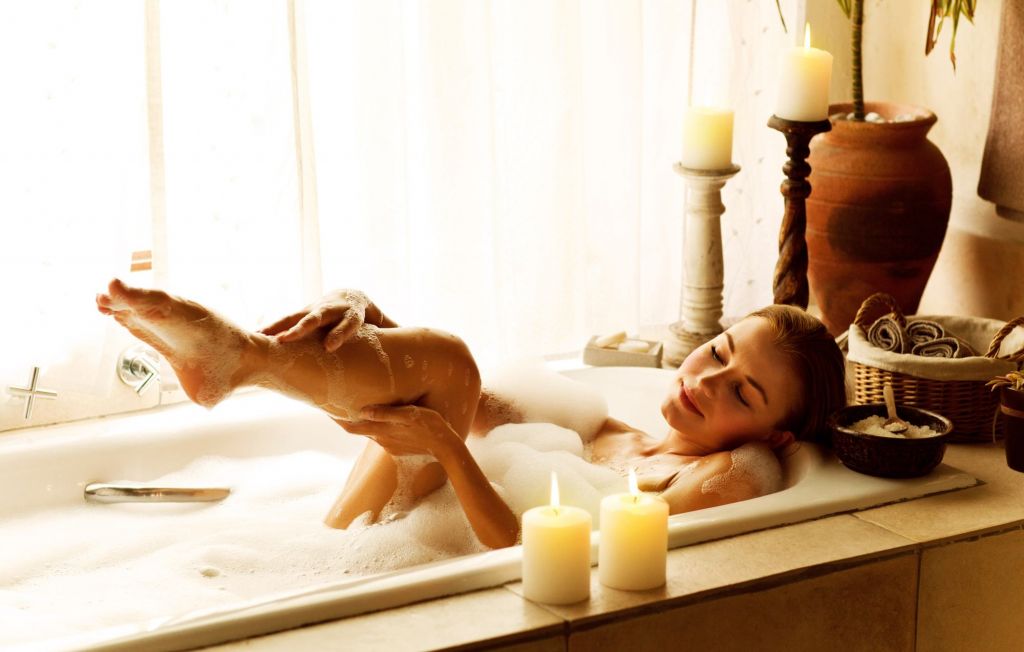
Relax those muscles and unwind physically and mentally with a warm scented bath. ( look at the aromatherapy section)
One theory held by sleep experts has it that normal body temperatures play off the body's circadian rhythm. Those temperatures are low during sleep and at their highest point during the day. Disrupting the sleep cycle can also reduce your human growth hormone output—which builds muscle—by as much as 70 per cent.
Along those lines, it's thought that the body begins to get drowsy as its temperature drops. Therefore, a warm bath taken about 4 or 5 hours before bedtime will raise that temperature. Then, as it begins to fall, you will feel more tired, which will make it easier to fall asleep.
From the 19th century until the 20th, in mental asylums, if anyone was particularly agitated, they would be put in a neutral bath. Have your bath at just above body temperature and, if you add Epsom salts, you can create your home flotation tank. It has a very calming, relaxing effect, but you do need to spend a good half-hour there.
If you're a worrier, try writing to-do lists for the next day.
Once your tasks are on paper, they will be less likely to cloud your mind and keep you awake.
Exercise can contribute significantly to a good night’s sleep.
Exercising during the day, it does not have to be that strenuous and even yoga will help with simple breathing exercises or a mindful body scan just before going to bed are also useful additions to your bedtime schedule.
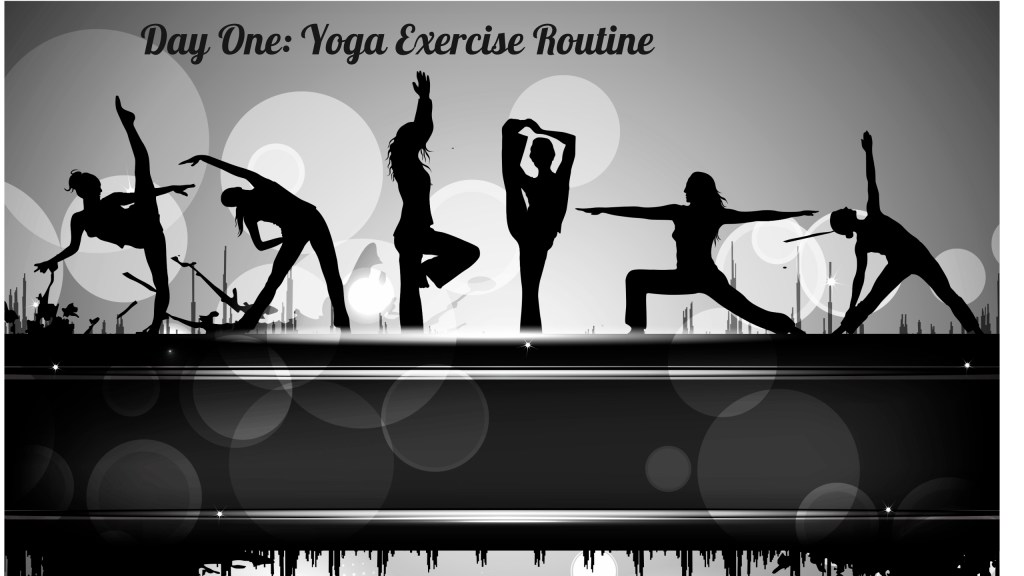
Exercise reduces hot flushes, according to a survey of menopausal women at the University of Granada.
Try a mix of cardio and strength four or five times a week and do some yoga before bed.
Women who did weekly 90-minute yoga sessions, with 11-13 poses and Yoga Nidra (yogic sleep) being a 20 to 30-minute meditative practice experienced significantly fewer night sweats, according to the American journal Menopause.
White chestnut , a Bach flower remedy, can be helpful if you cannot switch off mentally. Put a couple of drops in water and sip.
Basil tones and calms the nervous system - it acts as a natural sedative. Try pesto soup for supper. Valerian has been used to wean people off Valium and other narcotics. Take 1-2 g of the dried root as a tea 45 minutes before bedtime. Passiflora is also a soporific; try 1 -2 g of the dried herb as a tea, as for valerian.
Camomile , hops and lemon balm are also gentle, safe soporifics. You can now find a wide range of herbal teas that combine various soothing herbs - shop around to find ones you like and which work best for you.
For many, it's a pleasurable and mentally and physically relaxing way to let loose before settling down to sleep. Indeed some researchers have found that hormonal mechanisms triggered during some 'hanky - panky may help enhance sleep.
Once again, it depends on the person, if sex causes anxiety and creates problems, it is not such a good idea. However, if your libido / mojo isn't up to speed, you may find that your sex hormones are suppressed when we deprive ourselves of sleep.
Look for any underlying psychological causes behind your insomnia and, if necessary, seek appropriate help such as counselling, or stress management.
Do not worry.
Just try to keep your thoughts positive and concentrate on one or two things that brought you happiness or reassurance during the day. The one thing that drives insomnia more than anything is psychological. Keep yourself from re-hashing a stressful day of worries by focusing your thoughts on something peaceful and non threatening.
The most common vicious cycle is the one where worrying about not sleeping stops us from actually sleeping. Keep it positive – self talk to reassure yourself, and distraction to take your mind off the nagging or intrusive thoughts that will not go away.
You may find you are naturally predisposed to biphasic sleeping pattern and succumb to sleep around 10 pm, wake in the early morning for a short period before falling asleep again. It is down to your biorhythms and metabolism and you may naturally be a night owl but they also struggle with a 9 to 5 routine.
Examine your work schedule, people who work on "swing" shifts, being irregular schedules that frequently alternate from day to night have problems sleeping with their up and down schedule mimicking jet lag.
At bedtime : 10 minutes before you head to sleep, do a mindfulness exercise. Sit in a comfortable chair in a dimly lit room. Imagine the outline of your body and slowly trace it in your head. Keep in mind the amount of pressure you're feeling against the chair or the ground and be mindful of where there's more pressure and where there's less.
Start with your head. Is it touching the back of the chair?
How heavy does it feel against the chair, wall, or just the air?
Then slowly move down to your ear, then shoulder, arm, and leg. Work down to your feet and then back up the other side of your body.
If your mind begins to wander, notice that it wandered and get back on track.
Try to avoid judging yourself—your mind will indeed wander; the skill lies in getting it back on track.
In bed: Once you're in bed, focus on your breath.
Don't try and manipulate it, just observe it going in and then going out of your body. You might also do a gentle body scan, starting from your feet and slowly moving your awareness all the way up your body as you let the breath naturally flow in and out.
Notice any sensations as you visit each part of your form. If your attention wanders, just take note and gently come back to the body. When we allow ourselves to be with what's here, right now, the body naturally falls into a state of rest, and the mind might just follow.
If you are unable to fall asleep, get up, sit in the comfortable chair again, and repeat the exercise. Do not get back into bed until you're sleepy— and do not sleep in the chair!
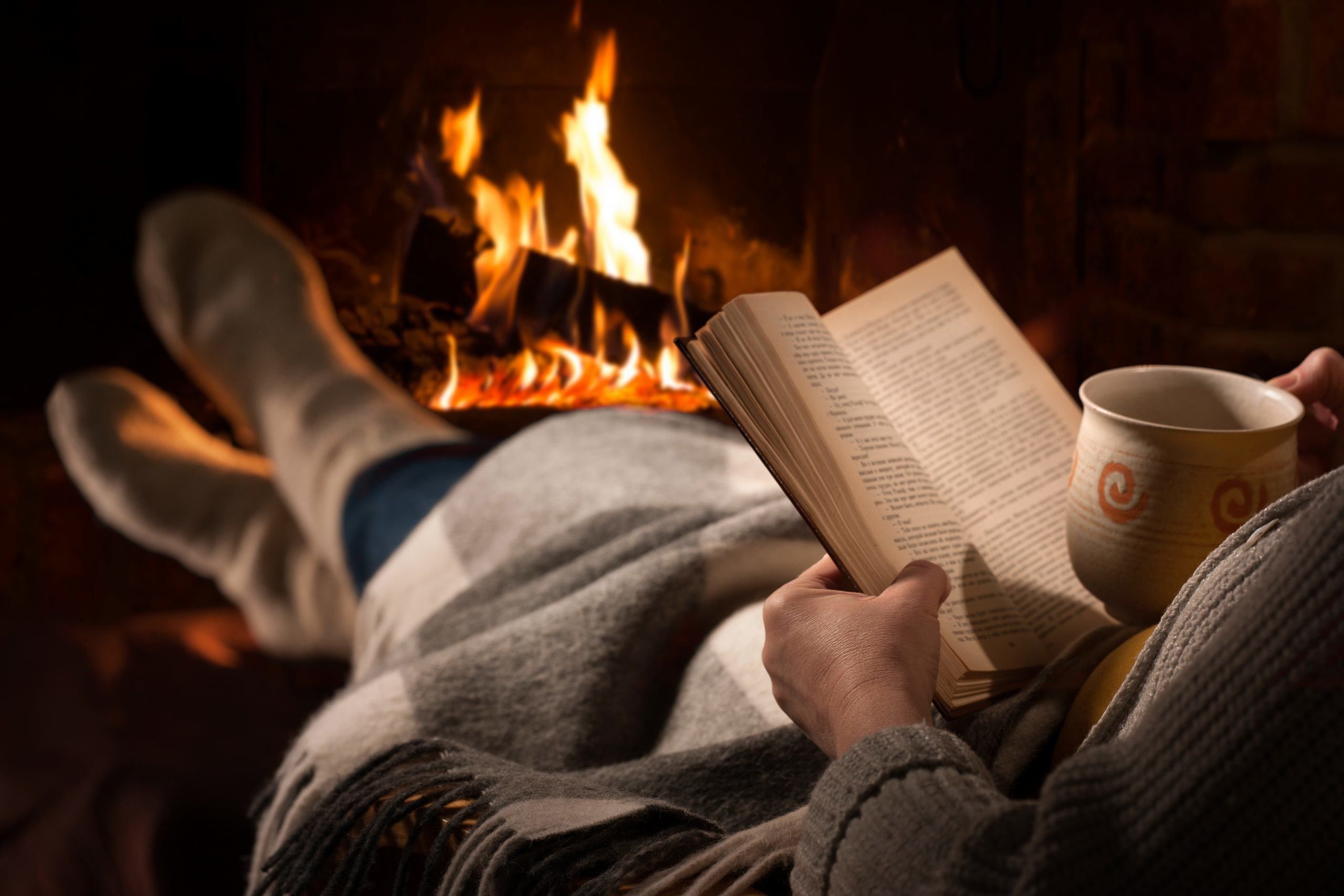
Try a guided body-scan meditation to help you sleep at mindful.org/feelbetter
This technique involves sequentially tensing and then relaxing individual muscle groups in various parts of the body. It aims to increase awareness of areas that may be holding tension and to achieve progressively deeper relaxation. With practice, a person learns to distinguish states of tension and relaxation and becomes better able to prevent stress.
Relaxation lowers the activity of the sympathetic nervous system, which controls any involuntary actions, thereby decreasing heart and respiration rates and blood pressure. This, in turn, may help prevent or alleviate various stress-related conditions, such as high blood pressure and tension headaches.
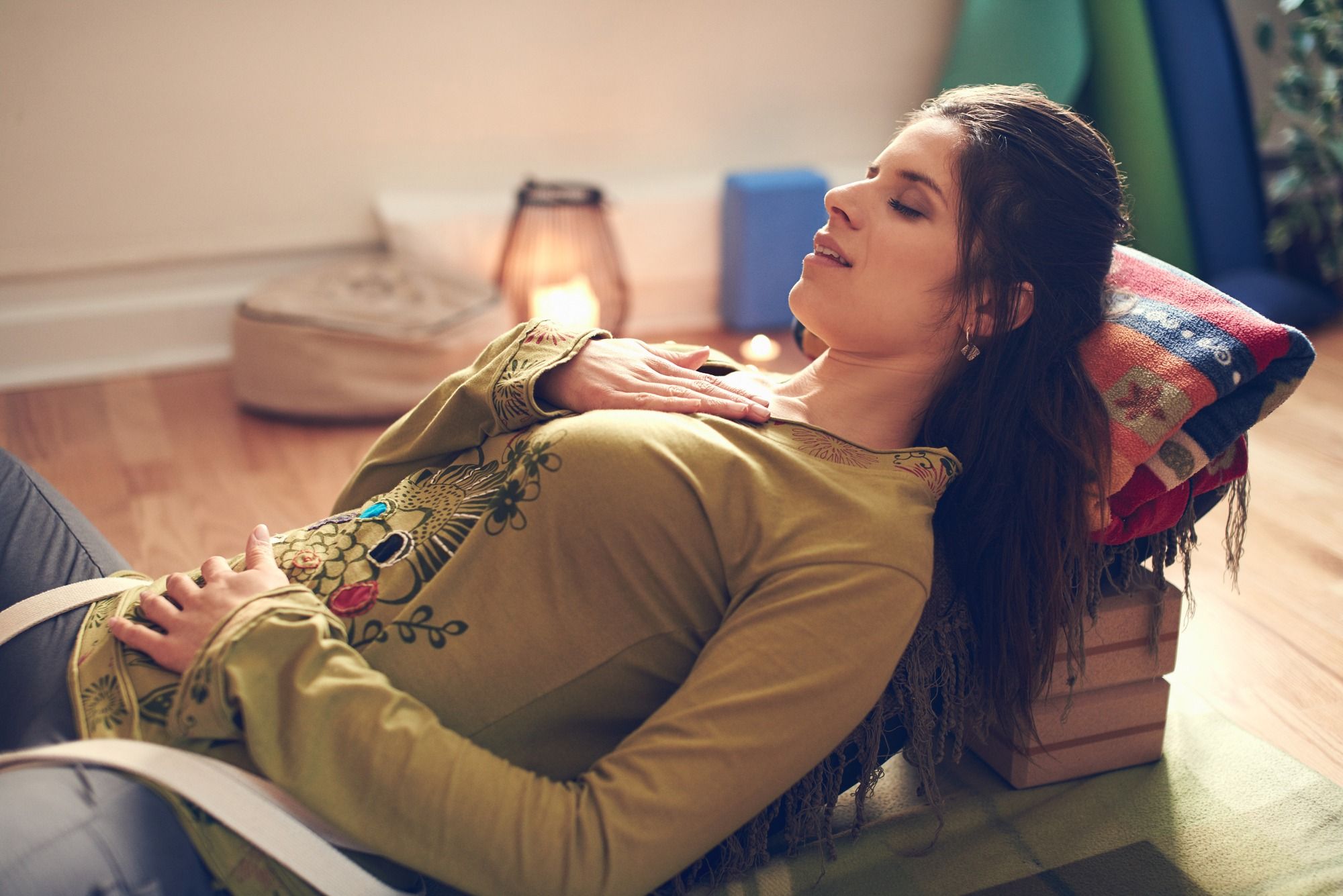
Progressive muscle relaxation was developed by American physiologist Edmund Jacobson in the early 1920s. Jacobson was one of the first scientists to measure the electrical activity of muscles.
He believed that anxiety resulted in muscle tension and that reducing this tension would lessen the body's stress response.
Practice
Individual methods of progressive muscle relaxation may vary slightly. A typical routine is to lie in a comfortable, relaxed position with eyes closed and concentrate on different body areas one by one.
Each major muscle group is tensed for around 15 seconds, then slowly released for about 30 seconds, inhaling on the tightening phase and exhaling with relaxation.
The associated feelings should be noted. Sequences often start at the brow or eyes and work progressively down the body to the toes, until the whole body is relaxed.
Treatments
Many people teach themselves this technique using books, videos or CDs. Others may prefer to learn from an experienced therapist.!
Progressive muscle relaxation is used both to promote general well-being and to treat various conditions believed to be associated with or worsened by stress.
Psychological problems progressive muscle relaxation can help to alleviate anxiety, phobias, depression, insomnia and tension headaches, as well as lessen feelings of stress in people who are quitting smoking.
Asthma (2002) in a study at the department of clinical psychology of nimhans in bangalore, India, progressive muscle relaxation along with other cognitive behaviour therapy techniques produced a significant decrease in asthma symptoms, and in anxiety and depression, compared with a control group.
osteoarthritis , significant reductions in pain and mobility difficulties, were observed among osteoarthritis patients using progressive muscle relaxation, according to a 2004 study from Purdue university school of nursing in Indiana.
Hyperacusis
Many patients with tinnitus, also complain of hyperacusis - sounds being uncomfortably loud. a small study published in the German medical journal laryngorhinootologie in 2000 showed that the threshold of discomfort was raised to normal in more than half of test patients following progressive muscle relaxation training.
Progressive muscle relaxation can be performed sitting or lying down in a comfortable position with eyes closed and focusing on tensing and relaxing each major muscle group in turn.

A “quick nightcap” might seem like a great way to help you wind down, but it will severely affect the quality of your rest, disrupting your REM (rapid eye movement) sleep which is associated with memory.
The concept and practice of a nightcap—having a small alcoholic drink before bed in order to get a good night's sleep
has been around since the 1700s.
But recently, its validity as a sleep aid has been questioned.
A new review of published studies, involving the sleeping habits of over 500 people who had a nightcap before a snooze in the sleep lab, reveals that a quick drink before bed won’t actually help you get a better night’s sleep.
Those who drank, no matter the amount, did in fact fall asleep faster and spent more time in a deep sleep for the first half of the night. However, as the night progressed, they woke up more frequently, experiencing increased sleep disruption—presumably as the alcohol’s effects wore off.
Milk is what is known as a complete food because it contains a balance of all three nutritional food groups: proteins, carbohydrates and fats,' says nutritionist Daisy Whitbread.
What's more, it contains the amino acid tryptophan, which your brain converts firstly to the happy hormone serotonin - hence why sipping from a warm mug of milk. before bedtime.
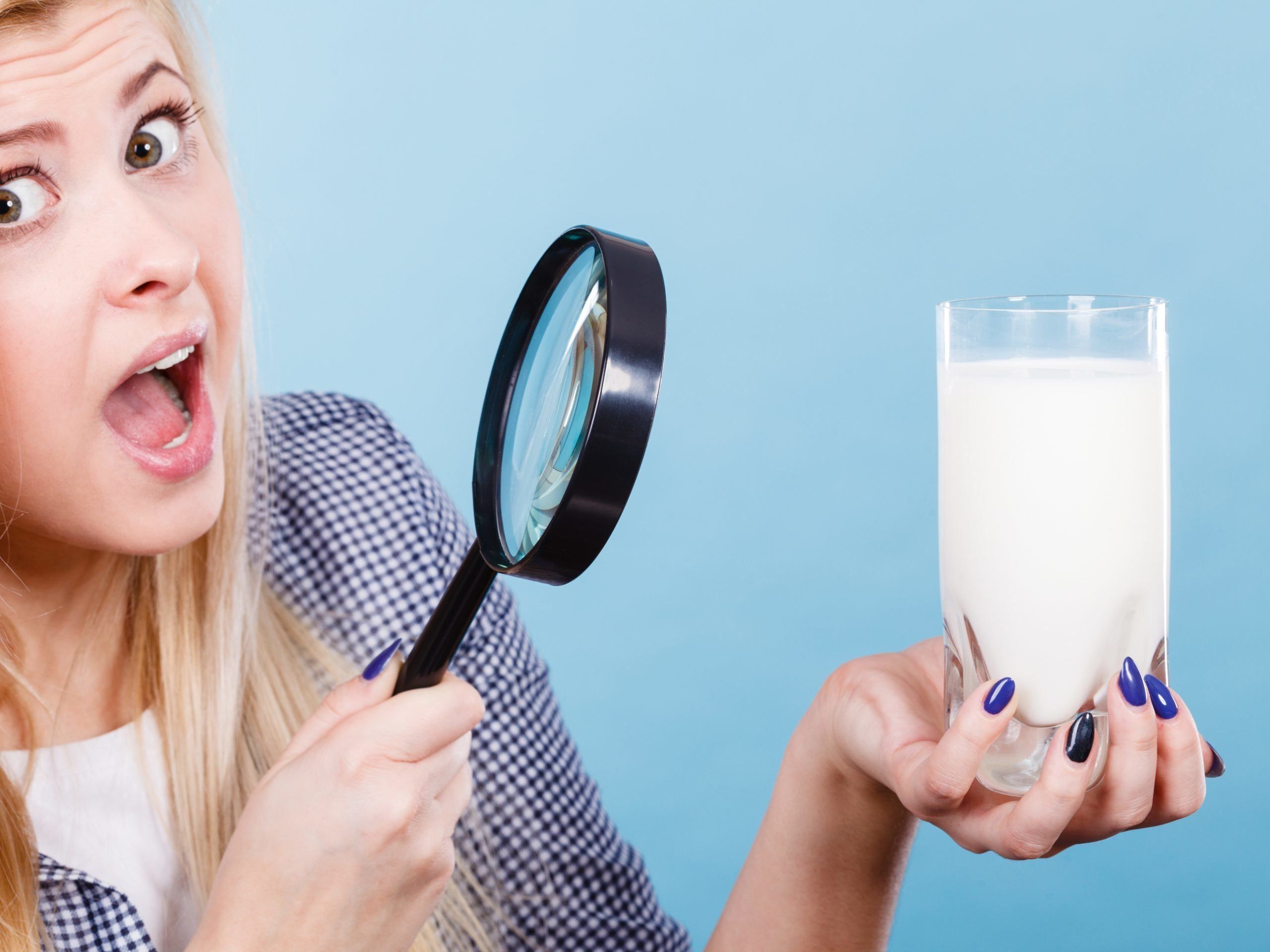
In a small 200ml glass of milk, you'll get nine per cent of your daily | needs of vitamin A, also known as retinol because it produces the pigments in the retinas of your eyes.
New studies have now linked this nutrient to improved sleep cycles too because when your eyes are healthy and able to take in adequate daylight, it helps set your circadian rhythm.
'Always opt for full-fat milk though, because vitamin A is fat-soluble, so if the fat is removed, many of the nutrients are lost.
A glass of milk also contains an impressive 23 mg of magnesium - that's almost 10 per cent of your daily needs. This mineral is vital for more than 300 enzyme reactions in your body.
Magnesium, present in cows' milk, plays a vital role in helping you to get to sleep, aiding the reduction of muscle tension and the deactivation of adrenaline, enabling you to relax.

Further to this, magnesium promotes the action of a calming neurotransmitter known as gamma-aminobutyric acid (GABA).
GABA's role is to switch off your brain, so your mind isn't racing at bedtime.
Why not try some of these cow's milk alternatives below in your tasty, hot bedtime cuppa?
They're perfect for helping you drift off.
The long lives of Bulgarian shepherds are often attributed in part to drinking ewe's milk!
Research suggests that sheep's milk is higher in protein, calcium and zinc than cow's milk.
Zinc helps relax your muscles and promote sleep.
The fat found in sheep's milk is much easier for people to digest compared to cow's milk, but it does contain lactose and its protein content means it may not be well tolerated by those with an A1 protein allergy.
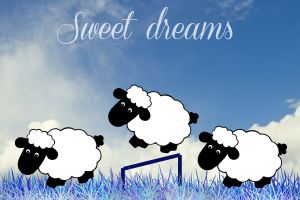
CINNAMON SIESTA
Sheep's milk has a neutral-to-creamy taste.
Keep it simple by heating 200 ml and adding a stick, or 1/2 tsp, of cinnamon and two cloves. Sieve before drinking - perfect for nap time!
Sweet dreams
Camel's milk is being hailed as a new superfood but it's been drunk in the East since 900 BC
Camel's milk is rich in tryptophan- low in saturated fats and vitamin A and D.
Individuals with an A1 protein intolerance are often able to drink camels milk.

Spicy delight
The slightly salty taste of this milk goes well with Tumeric. Just mix 200ml with half a teaspoon of turmeric. Plus a pinch of black pepper to enhance the absorption of the spice.
Simmer for 10 min, to help it infuse.

In Ayurvedic medicine, it is believed buffalo milk helps treat insomnia, thanks to the thick, creamy taste and fat content that makes it more sedating. It has a strong earthy smell, some would say you can smell the dairy farm in the milk and it is slightly higher in protein and much higher in calcium and muscle-relaxing magnesium than cow's milk.
Some people who are allergic or intolerant of cow’s milk do seem to be able to tolerate buffalo milk well. Whether this is as a result of the actual composition of the milk (cows and buffalo do have a completely different genetic make-up) or because buffalo have not been intensively reared, it is impossible to say.
Buffalo milk is said to have 43 per cent less cholesterol and 40 per cent more protein than ordinary cow's milk, making it healthier for adults too. Experts say it could help those with an allergy to cow's milk and conditions such as eczema.
Saffron rest
Gently warm 200ml of buffalo's milk with a couple of strands of saffron - its compound safranal is mood-boosting. Sweet dreams
Goats are renowned for their milk production and produce 2 per cent of the world's supply.
Goats milk can improve your gut bacteria which in turn produces better sleep and healthy digestion.
It is better tolerated than cows milk.
This milk is distinctive from cows milk, which is complemented well with honey. Warm 200ml of milk with a teaspoon of coconut oil and a drizzle of honey to make a coconut soother.
.
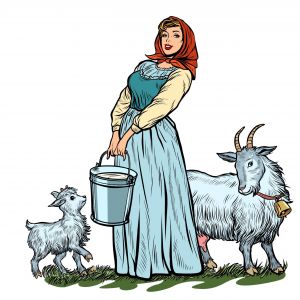
Sleep deprivation is not a specific disease in its self, but it is usually the result of other illnesses or life circumstances/events that can cause physical or psychological symptoms if prolonged with poor health outcomes. Under the ICD / DSM for sleep disorders, insomnia is when you may have trouble falling asleep, staying asleep, or both. As a result, you may get too little sleep or have a poor-quality sleep. You may not feel refreshed when you wake up.
Session expired
Please log in again. The login page will open in a new tab. After logging in you can close it and return to this page.